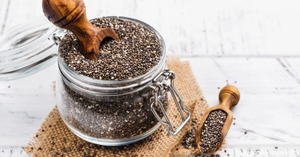The flu can challenge your immune system, making it essential to strengthen your body's natural defenses before, during, and after an illness. Building a resilient immune system involves adopting a balanced approach to diet, lifestyle, and mental health. This guide explores practical strategies to boost your immunity and enhance your resistance to the flu.
Optimize Nutrition
A. Focus on Immune-Boosting Foods
- Citrus Fruits (oranges, lemons, grapefruits): Rich in vitamin C, which enhances white blood cell production.
- Leafy Greens (spinach, kale): Provide antioxidants and beta-carotene to strengthen immunity.
- Garlic: Contains allicin, which has antimicrobial properties.
- Ginger: Reduces inflammation and supports the immune response.
- Turmeric: Its active compound, curcumin, is a potent anti-inflammatory agent.
- Yogurt and Fermented Foods: Rich in probiotics that promote gut health, a key component of immunity.
B. Maintain a Balanced Diet
- Include proteins (e.g., lean meats, beans, lentils) to support antibody production.
- Ensure healthy fats from sources like nuts, seeds, and avocados to reduce inflammation.
- Stay hydrated with water, herbal teas, and broths to support overall body functions.
Supplement Smartly
A. Vitamin D
- Often called the "sunshine vitamin," it helps regulate immune responses.
- Sources: Sunlight exposure, fatty fish, fortified foods, or supplements.
B. Zinc
- Supports the production and activation of immune cells.
- Sources: Meat, shellfish, nuts, and seeds.
C. Elderberry
- Popular for its antiviral properties, elderberry may reduce flu symptoms and duration.
D. Vitamin C
- High doses can shorten the duration of colds and flu.
- Supplements are helpful if dietary intake is insufficient.
Get Adequate Sleep
- Aim for 7-9 hours of quality sleep nightly.
- Poor sleep weakens immune function, reducing your body’s ability to fight infections.
- Create a relaxing bedtime routine: avoid screens, read, or practice meditation.
Manage Stress
Chronic stress can suppress your immune system, making you more vulnerable to the flu.
Techniques to Manage Stress:
- Mindfulness Meditation: Helps calm the mind and reduces stress hormones.
- Breathing Exercises: Techniques like 4-7-8 breathing promote relaxation.
- Physical Activity: Exercise like yoga, walking, or tai chi reduces cortisol levels.
Engage in Regular Exercise
Moderate exercise enhances immune function by improving circulation and mobilizing immune cells.
- Activities: Walking, swimming, cycling, or strength training.
- Aim for 30 minutes a day, five times a week.
- Avoid overtraining, as it can temporarily weaken immunity.
Maintain Gut Health
A healthy gut supports a robust immune system.
- Incorporate probiotic-rich foods like yogurt, kefir, sauerkraut, and kimchi.
- Eat fiber-rich foods (fruits, vegetables, whole grains) to nourish beneficial gut bacteria.
- Avoid excessive sugar and processed foods, which can disrupt gut health.
Stay Hydrated
Hydration is critical for maintaining mucosal barriers, the body’s first line of defense against pathogens.
- Drink 6-8 glasses of water daily.
- Include hydrating fluids like herbal teas (e.g., chamomile, ginger tea) and soups.
Practice Good Hygiene
Preventing the flu starts with minimizing exposure to viruses.
- Wash your hands frequently with soap for at least 20 seconds.
- Use alcohol-based hand sanitizer when soap is unavailable.
- Avoid touching your face, especially the mouth, nose, and eyes.
- Disinfect commonly touched surfaces, such as doorknobs and phones.
Consider Immune-Boosting Herbs
Certain herbs can enhance your body’s natural defenses:
- Echinacea: Supports immune cell activity.
- Astragalus: Known for its antiviral and immune-strengthening properties.
- Ginseng: May help prevent respiratory infections and improve energy levels.
Support Respiratory Health
- Use a humidifier to keep airways moist and reduce irritation.
- Practice steam inhalation with essential oils like eucalyptus or peppermint to clear sinuses.
- Avoid smoking or exposure to pollutants, which can weaken respiratory defenses.
Vaccinate Against the Flu
The flu vaccine is an essential preventive measure:
- Protects against the most common strains of the flu virus.
- Reduces severity and complications in case of infection.
- Recommended annually, especially for vulnerable groups like the elderly, pregnant women, and those with chronic illnesses.
Develop Healthy Habits
- Avoid excessive alcohol consumption, which suppresses immune function.
- Quit smoking to enhance respiratory and overall immunity.
- Foster social connections: Positive relationships boost mental and immune health.
Conclusion
Boosting immunity against the flu involves a holistic approach that combines proper nutrition, regular exercise, adequate sleep, stress management, and good hygiene. Incorporating these practices into your lifestyle strengthens your body's defenses, helping you stay healthy during flu season and beyond. Remember, small consistent changes lead to significant improvements in overall well-being.








Be the first one to comment on this story.